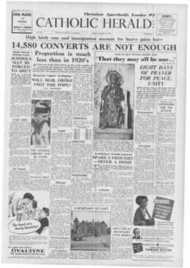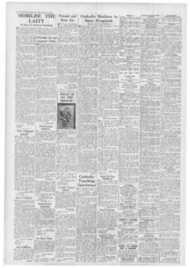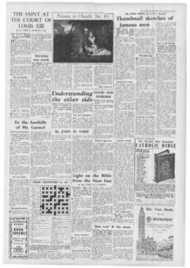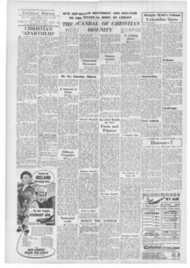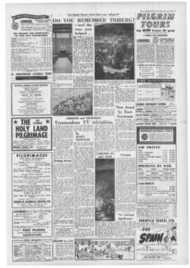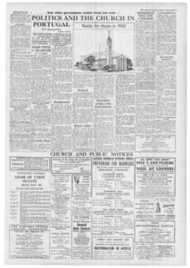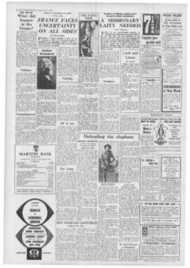Page 1, 16th January 1959
Page 1
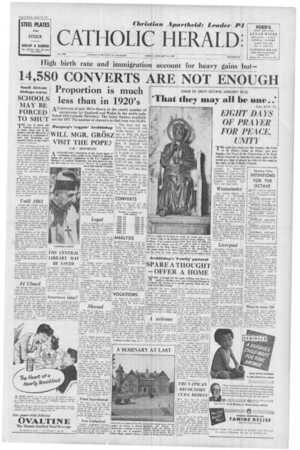
Report an error
Noticed an error on this page?If you've noticed an error in this article please click here to report it.
Tags
Share
Related articles
A 'safe' Bishop For Hungary
Mgr. Grosz Case In Commons
Laity Protest
Kadar
The Iron Grip On Hungary
Hungary's leryptie Archbishop
WILL MGR. GROSZ VISIT THE POPE?
• C.H. ' REPORTER
AREMARKABLE description of the cryptic figure of Archbishop Grosz, leader of the Church in Hungary during the enforced confinement in the U.S. Legation in Budapest of Cardinal Mindszenty, has been given in London this week to THE CATHOLIC HERALD, by a priest who stood trial with the Cardinal.
Following up a suggestion given in last Sunday's "Observer" that "Archbishop Grosz is expected to visit Rome soon for talks with the Pope," I called on Fr. Beda Ispanki, 42year-old Jesuit who escaped from Hungary in the 1956 Uprising and who is now working among 14,000 of his exiled compatriots in Britain.
And Fr. Ispanki, who with the Cardinal received sentence of life imprisonment, explained the position of the Archbishop, the
man in Hungary on whom the
Pope relies to continue keeping an uneasy truce between Church and State.
Loyal
The Archbishop who in 1945 told Pope Pius XII he would not accept the Primacy of Hungary. manages to stay out of prison, yet manages. too, says Fr. Ispanki, to remain loyal to the Church.
Asked to give his views on the reports that the Pope seeks to find ways and means to reach understanding with Iron Curtain countries with the object of alleviating the lot of the Silent Church, Fr. Ispanki said: "Individuals can be heroes, but heroism cannot he expected from the masses. Of course, His Holiness must find ways to let the Church carry on its work " Fr. Ispanki, himself a heroic confessor of the Faith, spent three years in solitary confinement, underwent long periods of starvation, was deliberately prevented from sleeping at night, then worked as a miner, stoker and bricklayer.
"Archbishop Gri.isz is not an outstanding figure like Cardinal Mindszenty." continued Fr. Ispanki. " He is a fatherly Bishop of German stock who knows everybody by name, goes into their houses to play cards. and turns the conversation quickly when a remark he might make would compromise his delicate position.
Shrewd
" He has a long nose ; he is shrewd, senses difficulties ahead, and keeps his mouth shut. He is supremely tactful. sociable, and is liked by all. When in 1945 he informed the Pope that he would not wish to he nominated to the then vacant primacy of his country, he did so because in his simplicity he really believed he had not the calibre of a national leader."
As Fr. Ispanki explained, Mgr. Grosz has over the years learnt the best way to deal with the Communists. " You give them a tiny hit, so as to get much in return for the Church," he said.
As an instance, he cites the care With which Mgr. Grosz avoids having the slightest contact with the Cardinal. Yet they have always been good friends.
" When in 1950 the Reds deported nuns and other religious from their convents, the Archbishop resigned himself to the inevitable, and by so doing won concessions for the Church, which could never have been gained through open resistance.
"As a result. five Catholic gram mar schools remain open today. the Franciscans go about the streets in their habit, there is a home for old priests. and three seminaries are functioning normally. All this has been achieved through the Archbishop's efforts."
blog comments powered by Disqus


